Current Affairs 17 October 2023.
Today’s News.
The Indian Himalayan Region needs its own EIA
Current Affairs 17 October 2023 | Relevant for GS paper-1, Silent Features of Physical Geography and GS Paper-3, environment and ecology

The Teesta dam breach in Sikkim in early October and the recent floods and landslides in Himachal Pradesh are a stark reminder of the havoc our development model is wreaking on our environment and ecology especially in the mountains.
- Environment Impact Assessment (EIA) is one such process defined by the United Nations Environment Programme (UNEP) as a tool to identify the environmental, social, and economic impacts of a project before it is implemented.
- The EIA process would need comprehensive, reliable data and would deliver results only if it is designed to seek the most appropriate, relevant and reliable information regarding the project.
- In India, a precursor to the EIA began in 197677 when the Planning Commission directed the Department of Science and Technology to assess the river valley projects from the environmental point of view.
- The hallmark of the 2006 notification was the decentralization of the process of EC. State governments were also given powers to issue EC in certain cases.
- Used diligently, the EIA could be the most potent regulatory tool in the arsenal of environmental governance to further the vision of sustainable development in the country.
- This notification has categorized projects under various heads such as mining, extraction of natural resources and power generation, and physical infrastructure.
- Despite all levels of government being acutely aware of the special needs of the Indian Himalayan Region (IHR), the region’s vulnerabilities and fragility have not been considered separately.
- The Indian regulatory system uses a graded approach, a differentiated risk management approach depending on whether a project is coming up within a protected forest, a reserved forest, a national park, or a critical tiger habitat.
- One unfortunate miss from this graded approach for differentiated risk management has been the IHR.
- While categorizing projects it is important that the impacts of all such projects and activities are seen in the IHR in the context of this region’s fragility and vulnerability visàvis ecology and environment.
- The increasing frequency with which the Himalayan States are witnessing devastation every year after extreme weather conditions shows that the region is already paying a heavy price for this difference.
- There is no regulator at the national level, as suggested by the Supreme Court of India in 2011 in Lafarge Umiam Mining (P) Ltd.; T.N. Godavarman Thirumulpad vs Union of India to carry out an independent, objective and transparent appraisal and approval of the projects for ECs and to monitor the implementation of the conditions laid down in the EC.
- In many cases, the EIA is done in a ‘box ticking approach’ manner, as a mere formality that needs to be done for EC before a project can be started.
Refresh to basics
Environment Impact Assessment
As per UNEP (United Nations Environment Programme) EIA is a tool used to identify the environmental, social and economic impacts of a project prior to decision-making.
- Aim: To predict environmental impacts at an early stage in project planning and design, find ways and means to reduce adverse impacts, shape projects to suit the local environment and present the predictions and options to decision-makers.
- Screening: First stage of EIA, which determines whether the proposed project, requires an EIA and if it does, then the level of assessment required.
- Scoping: This stage identifies the key issues and impacts that should be further investigated. This stage also defines the boundary and time limit of the study.
- Impact analysis: This stage of EIA identifies and predicts the likely environmental and social impact of the proposed project and evaluates the significance.
- Mitigation: This step in EIA recommends the actions to reduce and avoid the potential adverse environmental consequences of development activities.
- Reporting: This stage presents the result of EIA in a form of a report to the decision-making body and other interested parties.Public hearing: On completion of the EIA report, public and environmental groups living close to project site may be informed and consulted.
- Review of EIA: It examines the adequacy and effectiveness of the EIA report and provides the information necessary for decision-making.
- Decision-making: It decides whether the project is rejected, approved or needs further change.
- Post monitoring: This stage comes into play once the project is commissioned. It checks to ensure that the impacts of the project do not exceed the legal standards and implementation of the mitigation measures are in the manner as described in the EIA report.
Confronting the long-term risks of Artificial Intelligence.
Current Affairs 17 October 2023 | Relevant for GS paper-3, Science and Tech.

- Risk is a dynamic and ever evolving concept, susceptible to shifts in societal values, technological advancements, and scientific discoveries. For instance, before the digital age, sharing one’s personal details openly was relatively risk free.
- Yet, in the age of cyber attacks and data breaches, the same act is fraught with dangers. A vivid cinematic example of evolving perceptions of Artificial Intelligence (AI) risk is the film, Ex Machina.
- The immediate risks might be more tangible, such as ensuring that an AI system does not malfunction in its day today tasks. Long term risks might grapple with broader existential questions about AI’s role in society and its implications for humanity.
- One should be a bit worried about the intermediate and existential risks of more evolved AI systems of the future — for instance, if essential infrastructure such as water and electricity increasingly rely on AI.
- Any malfunction or manipulation of such AI systems could disrupt these pivotal services, potentially hampering societal functions and public well being.
- Similarly, although seemingly improbable, a ‘runaway AI’ could cause more harm — such as the manipulation of crucial systems such as water distribution or the alteration of chemical balances in water supplies, which may cause catastrophic repercussions even if such probabilities appear distant.
- The evolution to human level AI that is capable of outperforming human cognitive tasks will mark a pivotal shift in these risks. Such AIs might undergo rapid self improvement, culminating in a super intelligence that far outpaces human intellect.
- The challenge lies in aligning AI with universally accepted human values. The rapid pace of AI advancement, spurred by market pressures, often eclipses safety considerations, raising concerns about unchecked AI development.
- One of the most celebrated regulations out of these is the European Union’s AI Act. It adopts a ‘risk based’ approach, tying the severity of risk to the area of AI deployment.
- Therefore, while the area specific approach is valuable, a more holistic view of AI risks is necessary to ensure comprehensive and effective regulation and oversight.
- However, there is a conspicuous absence of collaboration and cohesive action at the international level, and so long term risks associated with AI cannot be mitigated.
- Thus, nations engaging in rigorous AI safety protocols may be at a disadvantage, encouraging a race to the bottom where safety and ethical considerations are neglected in favour of rapid development and deployment.
Furthermore, the confluence of technology with warfare amplifies long term risks. Addressing the perils of military AI is crucial. The international community has formed treaties such as the Treaty on the Non Proliferation of Nuclear Weapons to manage such potent technologies, demonstrating that establishing global norms for AI in warfare is a pressing but attainable goal.

Delay as tactic: The Centre should stick to timelines to avoid friction with the Collegium .
Current Affairs 17 October 2023 | Relevant for GS paper-2, Structure, Organization and Functioning of Executive and Judiciary.
- The Centre’s assurance to the Supreme Court that it would soon notify the appointment of Justice Siddharth Mridul of the Delhi High Court as Chief Justice (CJ) of the Manipur High Court is a welcome development.
- In another sign that it would be more accommodative of the Collegium’s recommendations, it has forwarded as many as 70 names approved by constitutional authorities in various States for appointment as judges of High Courts.
- The delay in notifying the appointment of Justice Mridul was apparently due to the State government taking time to give its views on the proposal. His name was recommended by the Collegium on July 5, and the delay was quite strange.
- The Collegium has also mooted the transfer of Justice M.V. Muralidaran, now Acting CJ in Manipur to the Calcutta High Court. A few days ago, it rejected his request that he be either retained in Manipur or allowed to go to his parent court, the Madras High Court.
- The Court has been vocal about the Centre’s selective treatment of its recommendations. There are instances of the government returning names that had been reiterated more than once. In recent times, it has shown that it can have its way by merely ignoring some of the Collegiums’ decisions.
- The conflict between the government and the Collegium over the appointment process is quite pronounced and often reaches a flashpoint. It is time the process was streamlined to give effect to the Supreme Court’s April 2021 order that set timelines for the government to process names recommended by the Collegium and express its reservations, if any.
Once the Collegium reiterates any recommendation, it should be implemented within three to four weeks. Whatever the inadequacies and failures of the Collegium p-rocess, it does not augur well for the institution if the legal position that a reiterated decision is binding on the government is undermined.
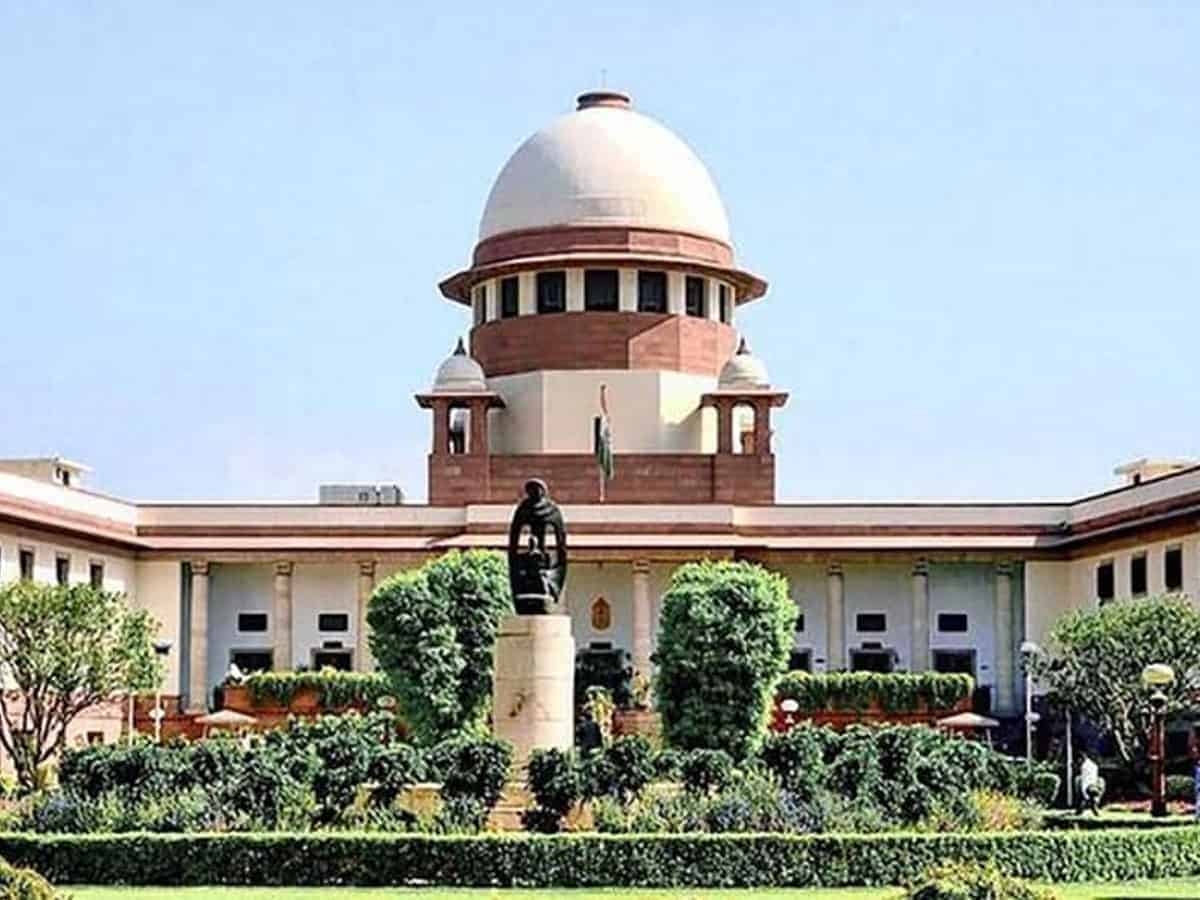
Coastal Security Exercise-East Coast Sagar Kavach 2023.
Current Affairs 17 October 2023 | Relevant for Prelims – Defense Related News..

- A comprehensive Coastal Security Exercise Sagar Kavach 02/23 involving all maritime security agencies was conducted by the Indian Navy in Andhra Pradesh, Tamil Nadu and the UT of Puducherry.
- The exercise was closely monitored at Joint Operations Centre (East) at Visakhapatnam which is the nodal hub for all coastal security operations and exercises in the area of operations.
- Enhanced security measures were instituted and extensive aerial surveillance undertaken by Dornier aircraft and helicopters.
Lessons learnt from the exercise would be incorporated to strengthen the coastal security architecture.

Goan cashew (kernel) GI tag
Current Affairs 17 October 2023 | Relevant for Prelims.

Recently, Goan cashew (kernel) got the Geographical Indication (GI) tag where recognition is hailed as a great opportunity for the cashew industry in the state and “a milestone towards Swayampurna Goa mission”.
- Cashew was native to northeast Brazil in Latin America and Goan Cashew was introduced to Goa by the Portuguese in the 16th century (1570).
- Initially used for afforestation and soil conservation, its economic value became known a century later.
Cashew production grew from a cottage industry to a major contributor to Goa’s economy, mainly due to its demand in the US.
Related Blogs…
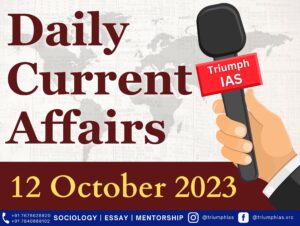 |
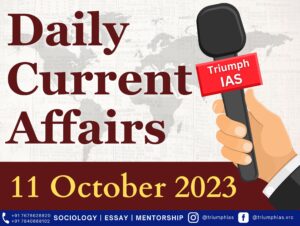 |
GS Related Practices Question…
To master these intricacies and fare well in the Sociology Optional Syllabus, aspiring sociologists might benefit from guidance by the Best Sociology Optional Teacher and participation in the Best Sociology Optional Coaching. These avenues provide comprehensive assistance, ensuring a solid understanding of sociology’s diverse methodologies and techniques.
META TAGS:
Current affairs 13 October 2023, Current affairs 12 October 2023, Today news, Today news GS, Today news upsc, Today news and views, Today news 2023, Today news Current affairs September 2023, Current affairs news, Current affairs book pdf, Current affairs best blog, Current affairs for UPSC, Current affairs 2023, Current affairs contact, Current affairs book, Current affairs program meaning

Choose The Best Sociology Optional Teacher for IAS Preparation?
At the beginning of the journey for Civil Services Examination preparation, many students face a pivotal decision – selecting their optional subject. Questions such as “which optional subject is the best?” and “which optional subject is the most scoring?” frequently come to mind. Choosing the right optional subject, like choosing the best sociology optional teacher, is a subjective yet vital step that requires a thoughtful decision based on facts. A misstep in this crucial decision can indeed prove disastrous.
Ever since the exam pattern was revamped in 2013, the UPSC has eliminated the need for a second optional subject. Now, candidates have to choose only one optional subject for the UPSC Mains, which has two papers of 250 marks each. One of the compelling choices for many has been the sociology optional. However, it’s strongly advised to decide on your optional subject for mains well ahead of time to get sufficient time to complete the syllabus. After all, most students score similarly in General Studies Papers; it’s the score in the optional subject & essay that contributes significantly to the final selection.
“A sound strategy does not rely solely on the popular
Opinion of toppers or famous YouTubers cum teachers.”
It requires understanding one’s ability, interest, and the relevance of the subject, not just for the exam but also for life in general. Hence, when selecting the best sociology teacher, one must consider the usefulness of sociology optional coaching in General Studies, Essay, and Personality Test.
The choice of the optional subject should be based on objective criteria, such as the nature, scope, and size of the syllabus, uniformity and stability in the question pattern, relevance of the syllabic content in daily life in society, and the availability of study material and guidance. For example, choosing the best sociology optional coaching can ensure access to top-quality study materials and experienced teachers. Always remember, the approach of the UPSC optional subject differs from your academic studies of subjects. Therefore, before settling for sociology optional, you need to analyze the syllabus, previous years’ pattern, subject requirements (be it ideal, visionary, numerical, conceptual theoretical), and your comfort level with the subject.
This decision marks a critical point in your UPSC – CSE journey, potentially determining your success in a career in IAS/Civil Services. Therefore, it’s crucial to choose wisely, whether it’s the optional subject or the best sociology optional teacher. Always base your decision on accurate facts, and never let your emotional biases guide your choices. After all, the search for the best sociology optional coaching is about finding the perfect fit for your unique academic needs and aspirations.
To master these intricacies and fare well in the Sociology Optional Syllabus, aspiring sociologists might benefit from guidance by the Best Sociology Optional Teacher and participation in the Best Sociology Optional Coaching. These avenues provide comprehensive assistance, ensuring a solid understanding of sociology’s diverse methodologies and techniques. Sociology, Social theory, Best Sociology Optional Teacher, Best Sociology Optional Coaching, Sociology Optional Syllabus.
Best Sociology Optional Teacher, Sociology Syllabus, Sociology Optional, Sociology Optional Coaching, Best Sociology Optional Coaching, Best Sociology Teacher, Sociology Course, Sociology Teacher, Sociology Foundation, Sociology Foundation Course, Sociology Optional UPSC, Sociology for IAS,
Follow us :



Find More Blogs…
| Compare and contrast Karl Marx’s and Max weber’s | Karl Marx- Historical Materialism |
| Talcott Parsons : Social system | Scope of the subject and comparison with other social sciences |

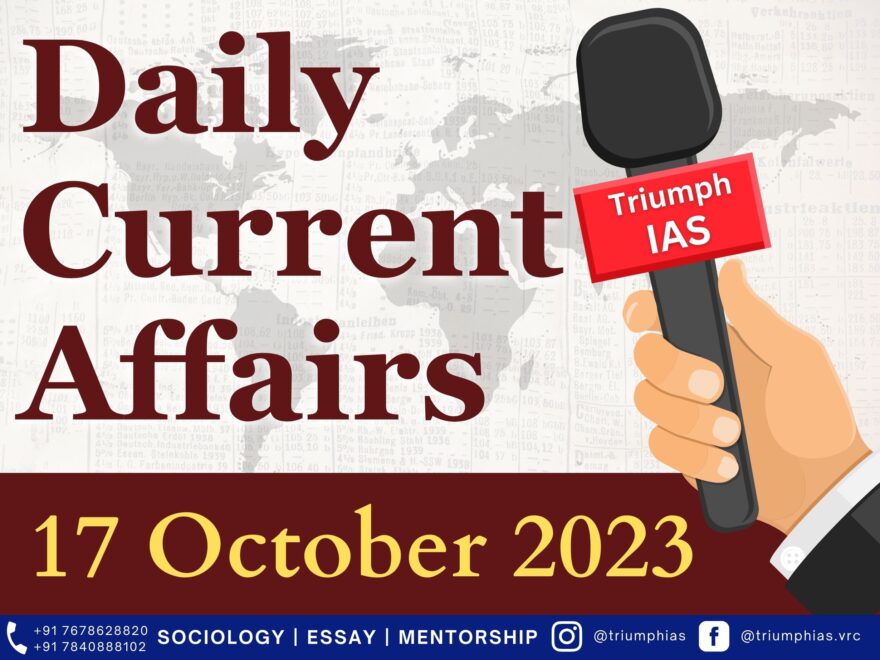
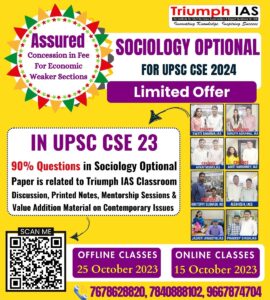
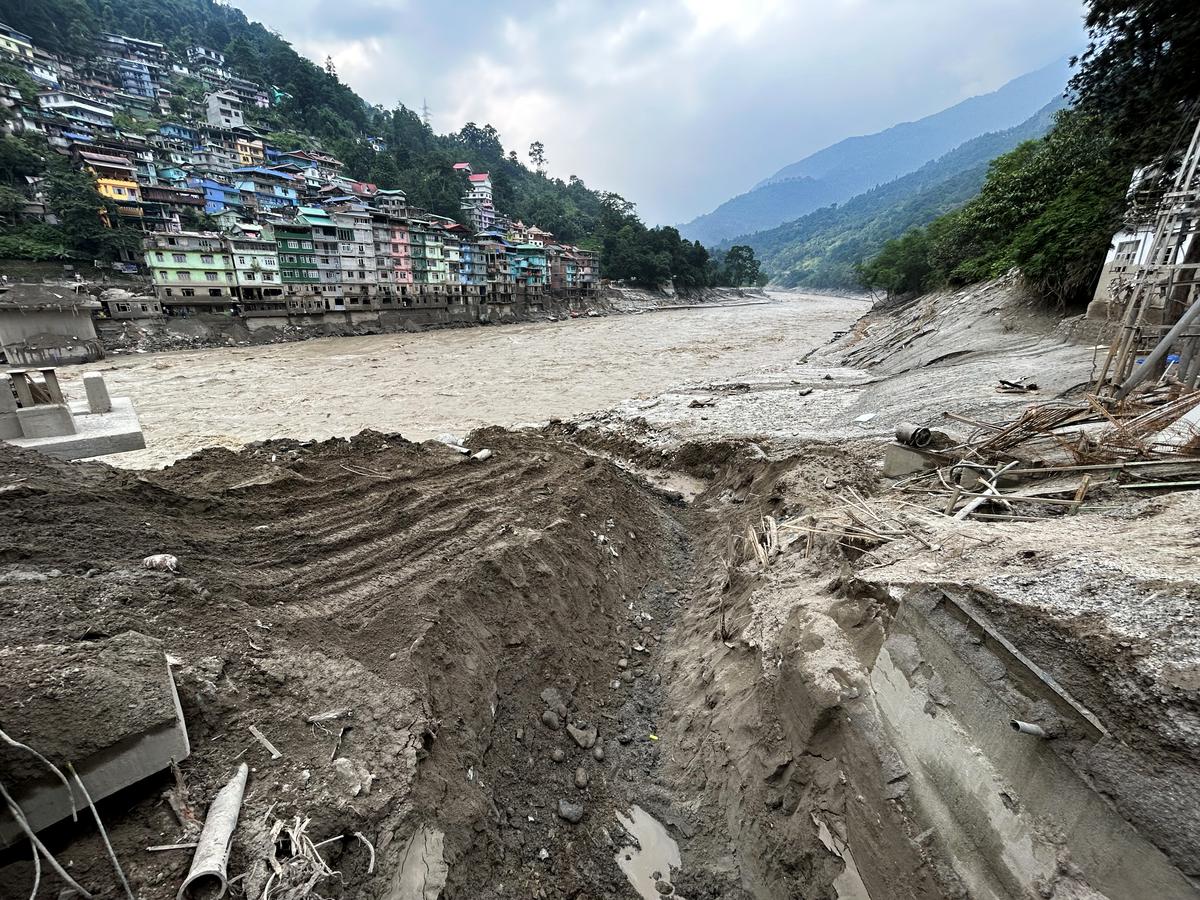

3 comments